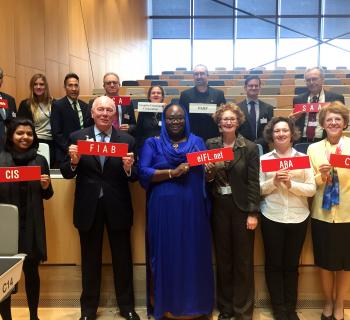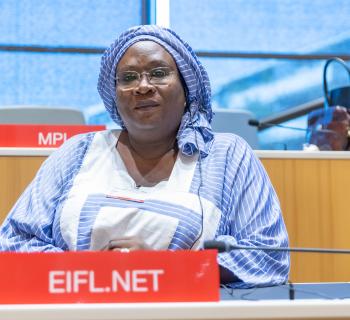
From 2005-2023, EIFL delivered 115+ interventions and presentations at WIPO negotiations in support of international copyright law reform.

Copyright is meant to balance public access to knowledge with the rights of authors, publishers and creators. However, in many countries copyright laws have not kept pace with new technologies and how information is used and shared.
The COVID-19 pandemic has shone a bright light on the importance of copyright exceptions to enable scientific discovery, online teaching and learning, and the ability of libraries to provide access to their collections during lockdowns. Now more than ever, we need a legal and regulatory copyright framework that is consistent across borders and recognizes the public interest role of libraries and archives in providing access to information in the global, digital environment.
For the most part, the protection of rightsholder’s rights is mandatory and global in nature, while users’ rights - copyright limitations and exceptions - for the most part are optional and are left to national discretion. As a result, global implementation of limitations and exceptions is weak. And while the international copyright system has evolved to protect works in the digital environment, the exceptions largely remain stuck in the pre-digital print world.
To get the international copyright system back on track for libraries, EIFL supports an international treaty on copyright limitations and exceptions to enable the effective functioning of libraries in the global digital environment.
A treaty would establish basic international standards for core library activities and services, protecting communities who rely heavily on libraries to access knowledge and information. It would ensure equal treatment of print and digital resources, protect the ability to acquire and lend digital works, safeguard our cultural and scientific heritage for future generations, and unlock orphan works (where the author or copyright holder cannot be identified or found) for socially beneficial purposes. For people everywhere.

• We support advocacy at the World Intellectual Property Organization (WIPO) - the main body that shapes international copyright law - for a global framework that benefits libraries in developing and transition economy countries.
• We are members of the A2K Coalition, a global group that represents educators, researchers, students, libraries, archives, museums, and other communities of knowledge users that share a vision of a fair and balanced copyright system that is underpinned by the Universal Declaration of Human Rights.
The reality is that the system is broken. None of our theories of copyright work when it comes to developing countries.
From 2005-2023, EIFL delivered 115+ interventions and presentations at WIPO negotiations in support of international copyright law reform.
A study commissioned by WIPO (2017) shows that nearly half of WIPO member states do not have an exception allowing libraries to make research copies for their users, and only 11% have a provision for inter-library document supply.